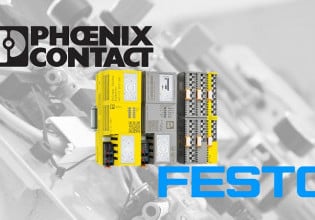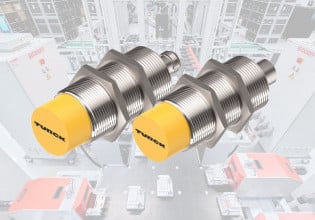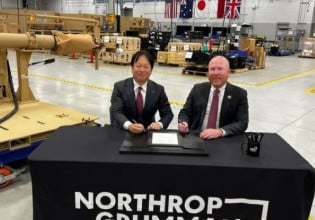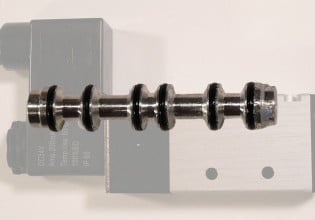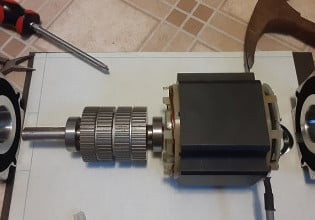Phoenix Contact Upgrades Control System Components to Support Industrial Automation Needs
Learn about the latest control and automation components from Phoenix Contact such as their new control cabinet, terminal blocks, and converters.
Phoenix Contact offers a variety of components for industrial electrical cabinets, field wiring and installation, PCB connections, and power distribution. Recently, Phoenix Contact upgraded some of their control cabinet components and PCB components.
AC Energy Meters
Phoenix Contact upgraded their line of EMpro energy meters to accommodate harsh environments so they can be installed outside for e-mobility charging. As electric charging is becoming increasingly popular in residential and industrial/commercial environments, more smart energy meters are being developed to keep up with the demands.
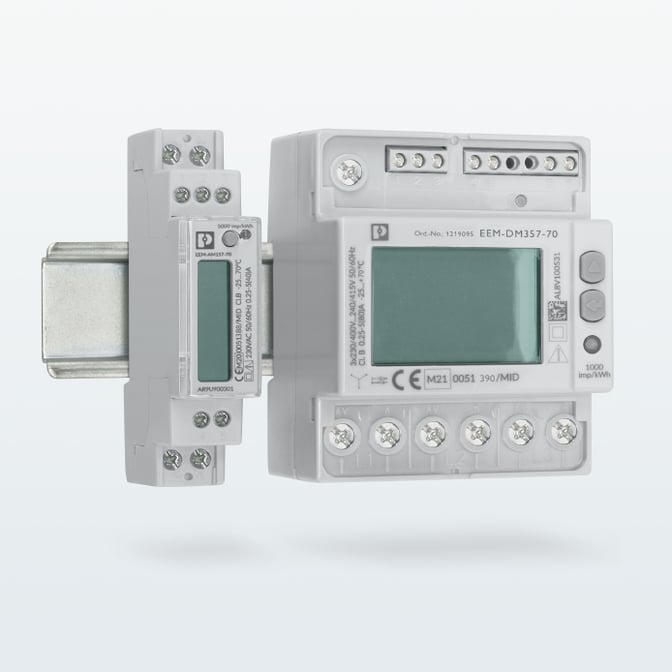
Their latest AC energy meters for charging infrastructure. Image used courtesy of Phoenix Contact
An AC energy meter allows one to instantly see how much electricity is being used to charge the vehicle. The Modbus/RTU interface or Modbus/Ethernet interface selects data and exports it for data logging or to a charging controller.
Hybrid Terminal Blocks
Their latest terminal blocks make connections within an electrical cabinet or combine and separate circuits. Typically, they are either push-in style or screw connection. The new hybrid terminal blocks from Phoenix Contact offer both styles in one terminal.

The hybrid terminal blocks. Image used courtesy of Phoenix Contact
They use the push-in style for connections within the cabinet and the screw-type connections for the end-user. These terminal blocks also have 4mm test sockets for more seamless testing of electrical circuits. When adding branching fuses or circuit breakers to circuits, the real estate of the electrical cabinet can be consumed quickly.
However, with the PTU hybrid terminal blocks, fuses can be directly added to individual terminals saving space and time tracing fuse locations.
DC/DC Converter for Solar
Solar panels are becoming very popular in recent years as society aims to be more green and technology advances. Solar panels are a great way to harness the sun’s energy and convert it to electrical power. The power that comes from a typical solar panel is in the direct current (DC) form and is usually when multiple cells are connected a large voltage is produced.

The new DC/DC converter of the TRIO product family. Image used courtesy of Phoenix Contact
A typical control power supply will convert alternating current (AC) to 24VDC. In a solar panel system, the DC power would need to be converted to AC then back to DC for any DC controllers or devices. This conversion would be very inefficient with many losses.
Phoenix Contact has provided a solution with a power supply designed for the solar power generation industry. The TRIO family of power supplies will convert energy from 450VDC up to 1,650VDC down to 24VDC. The TRIO power supply is built to withstand harsh environments with temperature ranges from -25°C to +70°C and push-in connections for easier installation.
PCB Connections for Profinet
Industrial protocols are becoming the industry standard. If you are bringing a product to market that requires a connection to Profinet it is best to have the correction connection port on your product. Phoenix Contact has expanded their already existing family of PCB terminal blocks to include terminal blocks designed for ProfiNet connections.
PCB terminal blocks for Profinet. Image used courtesy of Phoenix Contact
Profinet is an industrial protocol typically using ethernet connections. It is necessary to remove the RJ45 connector and hardwire the twisted pair wiring directly to PCB-mounted terminal blocks in some tight spaces. The terminal blocks are color-coded, have a variety of connection directions available, and come in either spring or screw terminal.
Phoenix Contact is hopeful that with the addition of these new control components, they can help engineers streamline their industrial operations with fewer steps.
Have you used any of these new products from Phoenix Contact? Let us know in the comments below.


